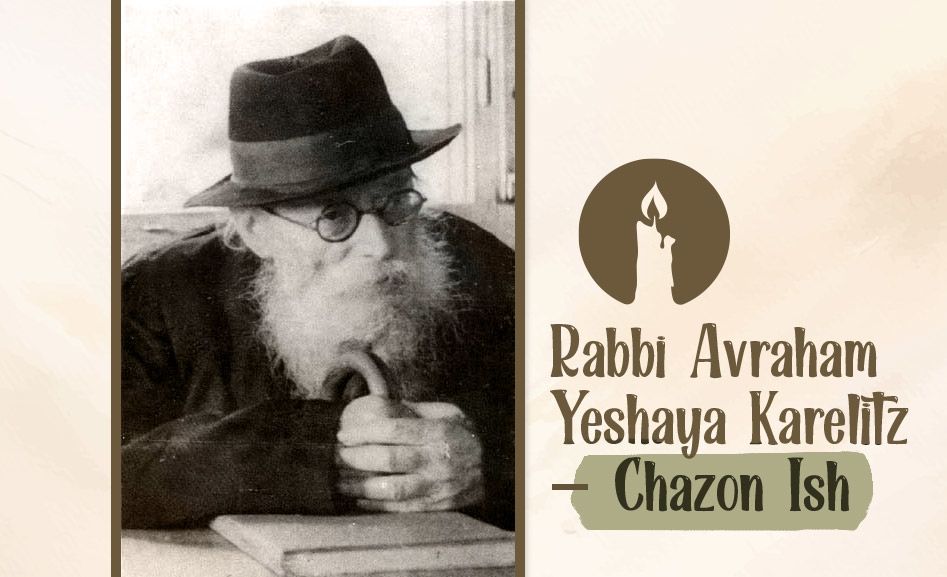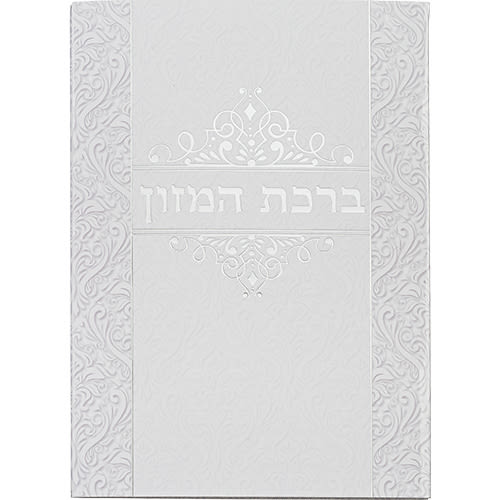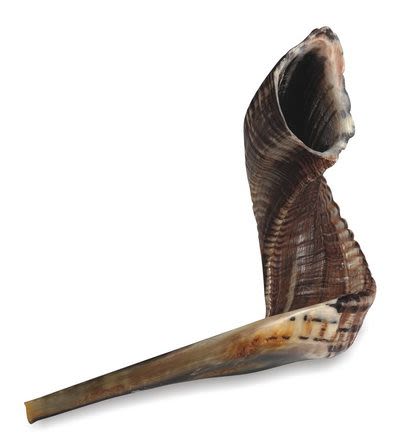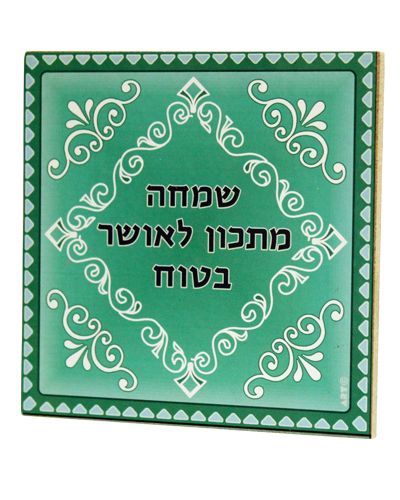
The Water Carrier of Sokolov – Reb Mendele
When Reb Mendele of Sokolov was still a young man, he set out on a personal search. He wanted to learn the secret of how to be a "real Jew." As he traveled...

As Reb Mendele of Sokolov traveled from shtetl to shtetl, he met many pious and compassionate folk along the way – but always something was lacking.
By the time he arrived in the village of Sokolov, the hour was already late. Reb Mendele was tired from the many miles he had walked that day, and so his one thought was to find a place to lodge. However, when he happened to pass by a dilapidated hut located on the outskirts of the town, something made him stop and linger.
Reb Mendele peered through the window, and inside the hut he saw a poor Jew bent over a worn volume of Psalms. The man seemed to glow as he uttered the holy words.
Several hours passed and still Reb Mendele stood transfixed at the window. During all that time, the man never once raised his gaze from his Book of Psalms, and Reb Mendele had no desire to disturb him. Finally, however, sleep got the better of him and Reb Mendele went to find a place where he could spend the night.
Although he wasn't exactly sure of the reason why, Reb Mendele decided to stay in Sokolov. Weeks passed and then months. Reb Mendele became acquainted with Sokolov's community, but his thoughts kept returning to the poor Jew he had seen through the window on that first night.
He was not surprised, therefore, to find that his feet would often follow his thoughts. Each time Reb Mendele returned to that broken-down hut, the scene inside was the same. The poor man sat bent over his Book of Psalms, and never once lifted his gaze from the page.
By now Reb Mendele knew the identity of the man, who was a water carrier by the name of Moshele. They had never spoken, however, and so one night Reb Mendele decided to find out more about him.
Reb Mendele went to Moshele's home and tried to engage the water carrier in conversation, but without much success.
"How are you, Reb Moshele?" Reb Mendele asked.
"Thank God," Moshele replied.
"And your family?" asked Reb Mendele.
"Thank God," was the reply.
"How's business?" Reb Mendele said, in a last attempt.
"Thank God," said Moshele, and with that conversation came to an end.
Reb Mendele tried several more times to speak to Moshele, yet he never heard more than the words "Thank God" from the water carrier's lips.
More time passed and Reb Mendele was now the Rebbe of Sokolov. With his many duties, he did not have much time to think about Moshele the water carrier – yet Reb Mendele never completely forgot about the man. Even though he was now a "rebbe," Reb Mendele would still sometimes take a walk to the outskirts of Sokolov to enjoy the sight of this pious Jew uttering the words of Psalms with heartfelt sincerity.
Reb Mendele was therefore surprised when one night he saw a very different scene transpiring inside the dilapidated dwelling of the water carrier.
Moshele was obviously celebrating some happy occasion, because the town's water carriers, tailors, cobblers and other artisans were all inside singing and dancing with him. As Reb Mendele peered through the window he could see there were many joyous faces in that crowd, yet there was one face that glowed with an especially holy light – the face of Moshele the water carrier.
Reb Mendele felt he must know the reason for this tremendous joy, and so he went inside. The singing and dancing came to an abrupt halt as soon as the workmen realized that the Rebbe of Soklov had joined them. Reb Mendele assured the men that he did not wish to interfere with their celebration, but he was curious to know the reason for their happiness.
There was silence in the room.
"Go on, Moshele," one of the water carriers called out. "Tell the Rebbe your story."
Despite the urging of his friends, Moshele continued to stand in silence for a few more minutes. Then he lifted his gaze from the floor and looked Reb Mendele straight in the eye.
"Why are you here, Rebbe?" Moshele asked quietly.
"I would like to know the reason for this celebration," Reb Mendele replied, "so I, too, can share in your joy."
Moshele then invited the rebbe to sit because, as the water carrier explained, it was a long story that he had to tell.
"Years before you came to this town, Rebbe," Moshele began, "my mother and father passed away. I grew up in the streets and I wouldn't have known how to distinguish the letters alef from beit, if it wasn't for the kindness of an old man who took pity on me. He taught me how to read the Book of Psalms, and that's how we would spend many a long winter night – huddled around the light of a single candle as we chanted together psalm after psalm.
"When the time came, I married a beautiful girl," Moshele continued, "and God blessed us with many beautiful children. I was not blessed, however, with a good livelihood."
Moshele then went on to tell Reb Mendele about how the years of hunger and illness had taken its toll on his family.
"We often go to bed hungry," Moshele said simply. "I can't sleep when I'm hungry, so I stay up all night and recite psalms. They are the only prayers I know."
Moshele paused in the telling of his tale, as if uncertain as to whether or not he should go on. At Reb Mendele's quiet urging, the water carrier once again began to speak.
"One night last week," said Moshele, "I just couldn't take it any more. I ran to the synagogue and flung myself before the holy Ark. 'Dear God,' I cried out, 'my wife and children are starving. Please have pity on them and send me some money so I can ease their pain.'
"Two days later," Moshele continued, "I was making my usual rounds. When you work as a water carrier, Rebbe, the weight of the yoke makes you keep your eyes fixed to the ground. Usually you don't see too much down there, except dirt and things people have thrown away. But on that day, just as I was passing the synagogue, I couldn't believe my eyes. There on the ground were 1,000 rubles.
"I couldn't believe my good fortune," said the water carrier. "I lifted up my eyes to God and with a heart full of joy I thanked Him for answering my prayers – and so quickly, too!"
Moshele then told Reb Mendele about how his first instinct was to run and tell everyone about the great miracle that had happened. Then another voice inside him cautioned him to remain silent. Moshele decided to listen to this voice and keep his secret for two days. If no one claimed the money in that time, he could then be certain the money was rightfully his.
When Moshele returned home, his wife and children were as sad as always. How he longed to show them the 1,000 rubles and let them know that soon their worries – and their hunger – would be over. But he held his peace, and after a simple meal of a slice of black bread and a few boiled potatoes he went to synagogue to daven Ma'ariv – the Evening Prayer Service.
When he got to the synagogue, the place was in an uproar. Everywhere Moshele turned, people were crying and moaning.
"What's happened?" Moshele asked one of his fellow water carriers.
"It's Chana," the water carrier sobbed.
"Gevalt, has there been another tragedy in the family?" Moshele asked.
Just the week before, Chana's husband, who had been a water carrier, had suddenly died. The other water carriers, including Moshele, had tramped from door to door to raise money to help Chana and her children. Their efforts were rewarded and they raised an impressive sum of money for the widow and orphans: 1,000 rubles.
"Chana has lost the money," the water carrier said to Moshele. "She's frantic. We can't go knocking on doors again for her, and she hasn't got a penny to buy even a loaf of bread."
Moshele paused for a moment in his telling of the story, and it was clear that he was reluctant to go on. It was only when the others in the room urged him to continue, that he once again began to speak.
"When I heard these words, Rebbe," Moshele said to Reb Mendele, "the ground gave way under my feet. I ran out of the synagogue and ran blindly, crazily, until I reached a field. There, in my anger, I poured out my heart to God.
"'Why did you have to give me Chana's money?' I asked God. 'You own the entire world, couldn't You have helped me without taking food out of the mouths of widows and orphans? Is this the way You answer my prayers?'"
But on that dark night, in that lonely field, there was no sound except the anguished cry of Moshele's angry sobs. Seeing that he was not going to get an answer to his questions, Moshele returned home with a heavy heart. He was so broken by what had happened that he couldn't get out of bed the next day. But even though he stayed in bed, he could find no rest. Every time he heard one of his children cry for food, he was once again filled with bitter, angry tears and his whole body shook with pain.
The afternoon was coming to a close. Moshele had not davened Ma'ariv the night before and he had not davened Shacharis that morning. Now it was time for Mincha, the afternoon prayer, and a small voice called out to him.
"What's this, Moshele?" called the voice. "You’re going to let a whole day pass by without talking to your Maker?"
"I'm mad at Him," Moshele said to the little voice.
"You're mad at Him for what He has done to you, or are you mad at yourself for what you have done to Chana?" the voice replied.
At that moment, it was as if a heavy weight had been lifted from Moshele's shoulders. Moshele knew exactly what he had to do, and so he jumped out of bed and ran out the door. He didn't stop running until he reached Chana's house and placed all the money he had found on her table.
Chana's eyes were so full of tears of sadness and worry that at first she couldn't see what Moshele had done. When she realized that the money, her 1,000 rubles, had been returned to her, she sobbed some more – only now she was crying for joy. Soon all her children were crowded around the table, and the little hut was filled with the sounds of their laughter and singing.
"Rebbe, as I watched them all laughing and singing," Moshele said, "I knew in my heart that God was trying to tell me something. I knew that I was never going to be a rich man. I was always going to be just Moshele the water carrier and life was always going to be a struggle for me. But at that moment, I also knew something else.
"Poor as I am, I still have plenty of reason to be happy," Moshele said quietly, "because I am still able to do God's will and act like a mench. So that's why my friends have made a party in my honor. We're celebrating how good it feels to act like a real Jew."
Reb Mendele never forgot that night – or Moshele the water carrier. After Moshele passed away, the Sokolover Rebbe would repeat every year, on the water carrier's yahrzeit, this story about the joy of being a "real Jew".
***
Libi Astaire is the author of Choose Light! Chassidic Tales for Chanukah, Rosh Hashanah, Sukkos, Passover & Shavuos; Breakfast with Rav Zusha and Other Stories to Wake Up Your Soul; and the award-winning Jewish Regency Mystery Series. Visit her website for more information about these and other books.










Tell us what you think!
Thank you for your comment!
It will be published after approval by the Editor.